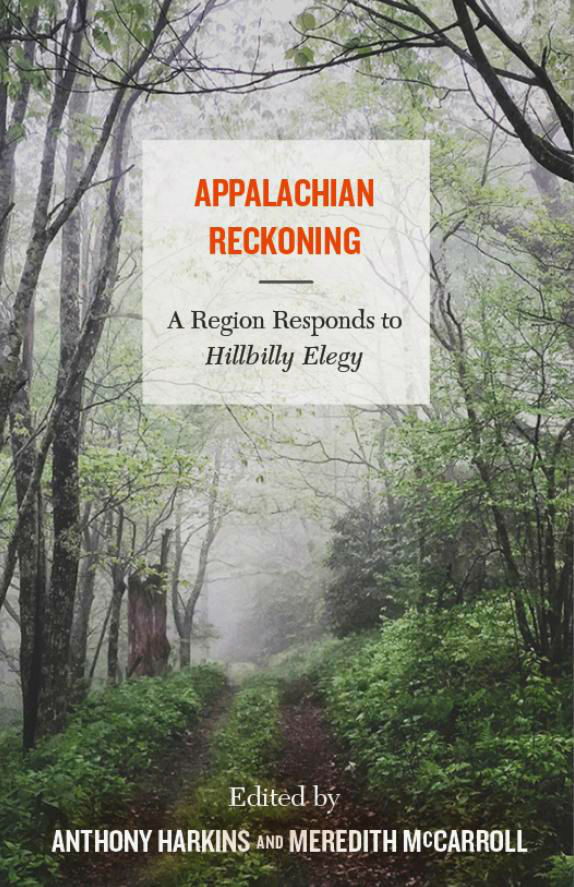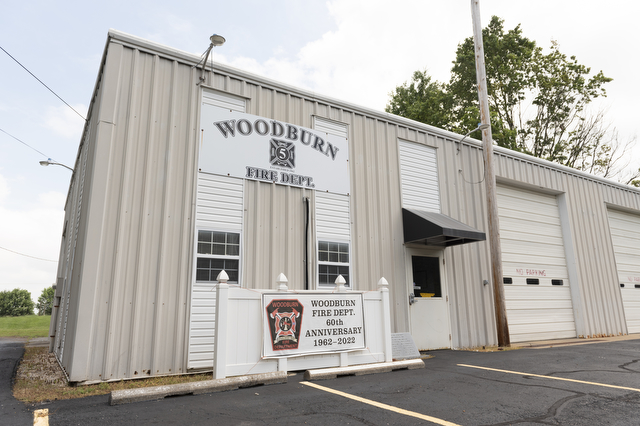Book review: ‘Appalachian Reckoning’
Published 12:00 am Sunday, January 20, 2019

- BOOK REVIEW
“Appalachian Reckoning: A Region Responds to Hillbilly Elegy” edited by Anthony Harkins and Meredith McCarroll. Morgantown, W.Va.: West Virginia University Press, 2019. 432 pages, $28.99 (hardcover).
“This is a book born out of frustration,” Anthony Harkins and Meredith McCarroll explain in the introduction to “Appalachian Reckoning: A Region Responds to Hillbilly Elegy,” their new edited volume written primarily in response to J.D. Vance’s “Hillbilly Elegy: A Memoir of a Family and Culture in Crisis,” a national best-seller soon to be made into a major motion picture directed by Ron Howard.
“This book is born out of hope,” they continue. “It attempts to speak for no one and to give voice to many. This is a book that could have emerged without “Hillbilly Elegy,” but it was also created in the explicit context of a post-election, post-‘Hillbilly Elegy’ moment. It therefore attempts to respond to those who have felt they understand Appalachia now that they have read ‘Hillbilly Elegy’ and to push back and complicate those understandings.”
After making my way through the thought-provoking and multifaceted viewpoints assembled in this concise yet surprisingly comprehensive primer, I can confirm categorically that the stated purpose for conceiving and creating this collection has been enthusiastically achieved. As is often the case when a book captures the public imagination in the way “Hillbilly Elegy” has, those who are most affiliated with the culture depicted in the narrative often feel the richness and complexity of their lives has been somewhat shortchanged. This sentiment comes through loud and clear in “Appalachian Reckoning.”
Structurally, the book consists of an introduction and 41 essays arranged in two major sections: “Part I: Considering Hillbilly Elegy,” which is comprised of an “Interrogating” and a “Responding” section, and “Part II: Beyond Hillbilly Elegy.” Altogether, there are 40 contributors representing a diverse cross section of perceptions on the topic at hand. I was particularly impressed with the depth and richness of the various perspectives. Taken collectively, the volume presents a very balanced and well-constructed critique and dissection of Vance’s “Hillbilly Elegy.”
In truth, and as many of the contributors to “Appalachian Reckoning” so astutely observe, Vance’s version (and interpretation) of the people and events captured so eloquently in his mega-selling release is definitively monolithic. This is not to say that his portrayal, within the narrow confines of his personal experience, is inaccurate so much as it is incomplete. He tells one story; those who were brought together to produce this rejoinder are simply pointing out that there are multiple storylines at play in the region – all of which can be considered just as legitimate as the singular one Vance produced.
Case in point. Ivy Brashear is the Appalachian transition coordinator at the Mountain Association for Community Economic Development in Berea. She is a 10th-generation Appalachian whose family has lived in Perry County since before the Civil War. Obviously, she knows quite a lot about what it is like to live in the region and has the credentials to speak authoritatively and articulately about her experience – which she does in “Keep Your ‘Elegy’: The Appalachia I Know is Very Much Alive,” the inaugural essay in the “Responding” section.
Consider her insights: “Misrepresentation of Appalachia matters for several reasons. It obscures and intentionally eclipses the pride and dignity of being Appalachian – pride and dignity I personally and many other Appalachian people feel deep within ourselves. Pride and dignity that I was told stories about my elders, that my high school friends expounded upon on Facebook, that my aunt Delilah Sue once told me to never forget and never lose. ‘Hillbilly Elegy’ instead tells us – like so many false narratives before – that we should be ashamed of who we are, where we come from and the people in our blood. It says to us that we aren’t worthy or deserving of anything more than being the butt of a joke. Such messages hit us hard in our guts, because the truth is way more complicated and way more real, and nobody likes tales to be carried about them.”
Harkins is a professor of history at Western Kentucky University and has a Ph.D. in history from the University of Wisconsin-Madison. The co-editor of the media section of the Encyclopedia of Appalachia, which was published by the University of Tennessee in 2006, he is also the author of “Hillbilly: A Cultural History of an American Icon,” published in 2003. His articles have appeared in American Humor, Appalachian Journal, The Journal of Appalachian Studies and Historically Speaking. McCarroll, who has a Ph.D. in English from the University of Tennessee, is director of writing and rhetoric at Bowdoin College. Her work has been featured in Southern Cultures, South Carolina Review, Appalachian Journal, and Pluck! Journal of Affrilachian Arts and Culture; she published “Unwhite: Appalachia, Race, and Film in 2018.”
Perhaps Edward Karshner, an associate professor of English at Robert Morris University and an eighth-generation Appalachian, best captures the overarching sentiment of the book in “These Stories Sustain Me: The Wyrd-ness of My Appalachia,” his essay on the importance of storytelling:
“I wish J.D. Vance could see his life through the lens of Appalachian storytelling. I want him to understand that living an American Dream not of your own choosing is not ‘lucky,’ especially if you have to leave behind your own stories and traditions – those best things. Appalachian storytelling teaches us that luck is made when we know and live our traditions; that the wyrd-ness of the Appalachian cosmovision is the antidote to material and spiritual poverty.”
By the way, the meaning in this passage is probably not what you think it is. A couple of the terms he uses come from Old Norse; he explains their meaning within the context of his audience.
If you read “Hillbilly Elegy,” you definitely need to pick up a copy of “Appalachian Reckoning.” Ironically, I did things in reverse; this enlightening compilation prompted me to pick up a copy of Vance’s book. As they say in one of my all-time favorite TV shows, “the truth is out there.” Highly recommended.
– Reviewed by Aaron W. Hughey, Department of Counseling and Student Affairs, Western Kentucky University.






